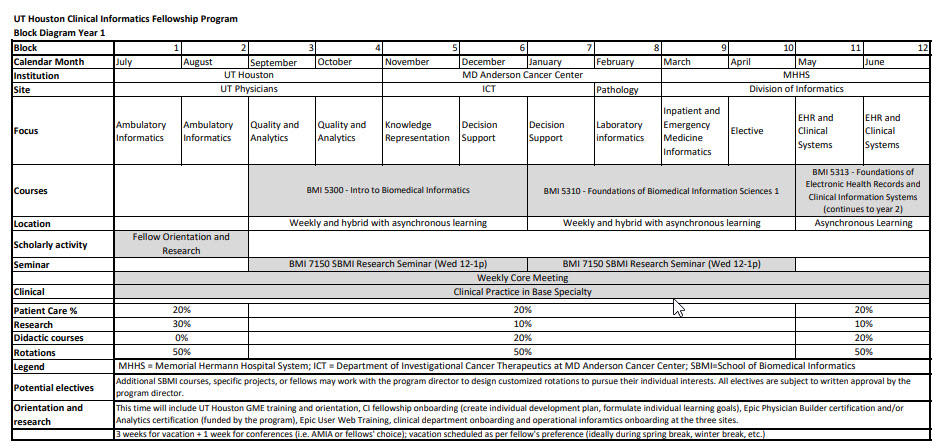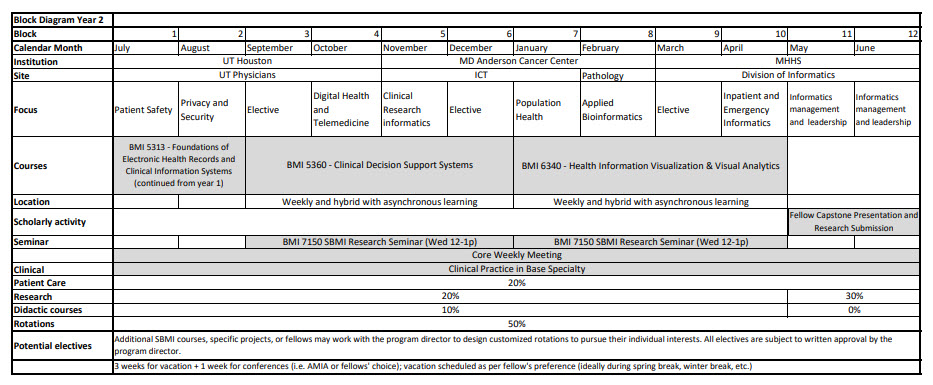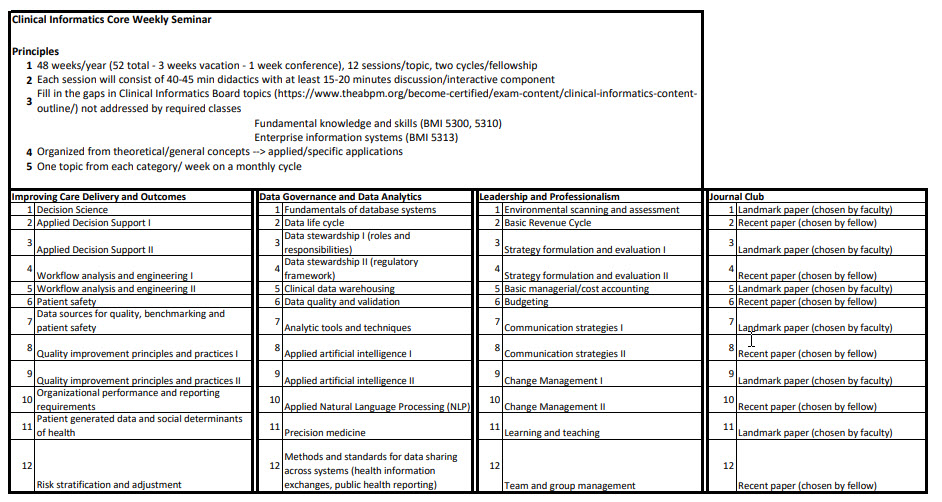Curriculum
Educational curriculum and goals are organized around the ACGME Program Requirements for Graduate Medical Education in Clinical Informatics and prepare fellows for clinical informatics board certification. The core content areas are:
- Fundamental Knowledge and Skills: Fundamental knowledge and skills which provide clinical informaticians with a common vocabulary, basic knowledge across all Clinical Informatics domains, and understanding of the environment in which they function.
- Improving Care Delivery and Outcomes: Knowledge and skills that enable a clinical informatician to develop, implement, evaluate, monitor, and maintain clinical decision support; analyze existing health processes and identify ways that health data and Health Information Systems (HIS) can enable improved outcomes; support innovation in the health system through informatics tools and processes.
- Enterprise Information Systems: Knowledge and skills that enable a clinical informatician to develop and deploy health information systems that are integrated with existing information technology systems across the continuum of care, including clinical, consumer, and public health domains. Develop, curate, and maintain institutional knowledge repositories while addressing security, privacy, and safety considerations.
- Data Governance and Data Analytics: Knowledge and skills that enable a clinical informatician to establish and maintain data governance structures, policies, and processes. Incorporate information from emerging data sources; acquire, manage, and analyze health-related data; ensure data quality and meaning across settings; and derive insights to optimize clinical and business decision making.
- Leadership and Professionalism: Knowledge and skills that enable a clinical informatician to build support and create alignment for informatics best practices; lead health informatics initiatives and innovation through collaboration and stakeholder engagement across organizations and systems.
The curriculum will consist of didactics (courses, seminars), mentorship, research projects, and operational projects at the three sites.
Sample Block Diagram


